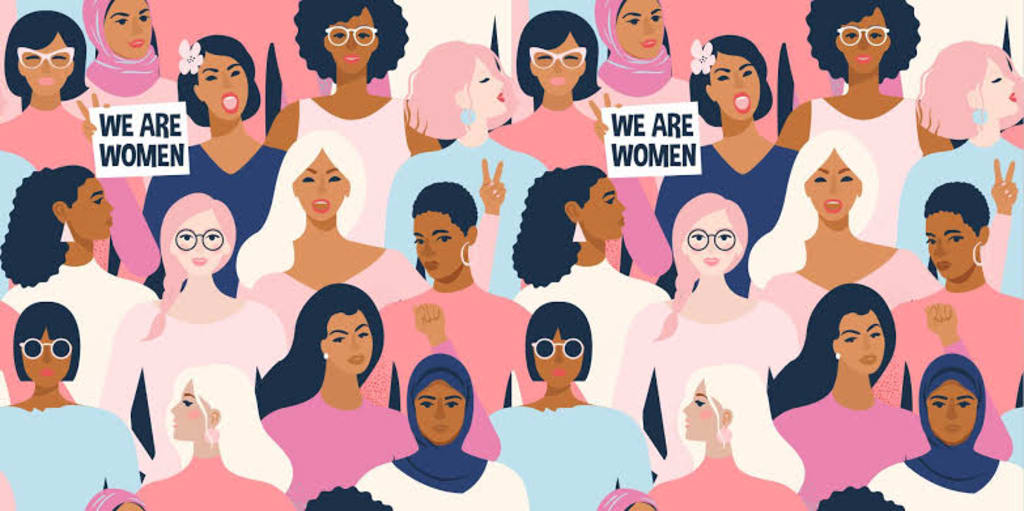Title: Exploring Feminism: A Journey Towards Gender Equality
A Comprehensive Exploration of Feminism’s Evolution, Principles, and Ongoing Impact on Society

Introduction
Feminism is a socio-political movement and ideology that has played a pivotal role in shaping the modern world. It advocates for the rights of women and seeks to address the historical and ongoing inequalities they face in various aspects of life. In this article, we’ll delve into the core principles of feminism, its history, and its impact on society.
Understanding Feminism
Feminism is not a monolithic belief system; it encompasses a diverse range of perspectives and goals. However, at its core, feminism aims to achieve gender equality. This means not only challenging the systemic oppression and discrimination women have faced but also dismantling the patriarchal structures that perpetuate these inequalities.
Historical Context
The roots of feminism can be traced back to the late 19th and early 20th centuries. First-wave feminism primarily focused on women’s suffrage, securing the right to vote for women in many countries. Second-wave feminism emerged in the 1960s and 1970s, addressing issues beyond suffrage, such as reproductive rights and workplace discrimination. Third-wave feminism, which began in the 1990s, expanded the movement’s scope to include intersectionality, recognizing that gender equality is interconnected with other forms of oppression, including race, sexuality, and class.
Simone de Beauvoir wrote that "the first time we see a woman take up her pen in defense of her sex" was Christine de Pizan who wrote Epitre au Dieu d'Amour (Epistle to the God of Love) in the 15th century. Heinrich Cornelius Agrippa and Modesta di Pozzo di Forzi worked in the 16th century. Marie Le Jars de Gournay, Anne Bradstreet and Francois Poullain de la Barre wrote during the 17th.
Feminists and scholars have divided the movement's history into three "waves". The first wave refers mainly to women's suffrage movements of the nineteenth and early twentieth centuries (mainly concerned with women's right to vote). The second wave refers to the ideas and actions associated with the women's liberation movement beginning in the 1960s (which campaigned for legal and social rights for women). The third wave refers to a continuation of, and a reaction to the perceived failures of, second-wave feminism, beginning in the 1990s.
Key Principles
1. Gender Equality: Feminism advocates for equal rights, opportunities, and treatment for people of all genders. It challenges societal norms that perpetuate stereotypes and limit the potential of individuals based on their gender.
2. Empowerment: Feminism encourages women to assert themselves and pursue their goals without constraints. It emphasizes the importance of self-determination and autonomy.
3. Intersectionality: Modern feminism recognizes that the experiences of women are shaped by multiple factors, including race, ethnicity, sexual orientation, and socioeconomic status. Intersectional feminism seeks to address these overlapping inequalities.
4. Inclusivity: Feminism is not just for women; it welcomes people of all genders who support its goals. Men can be feminists too, advocating for gender equality alongside women.
Impact on Society
Feminism has made significant strides in reshaping societal attitudes and policies. Some notable achievements include:
• Legal Changes: Feminist movements have led to legal reforms that protect women’s rights, such as laws against gender-based discrimination and harassment.
• Increased Representation: Feminism has contributed to greater representation of women in politics, business, and various fields, challenging traditional gender roles.
• Cultural Shifts: Feminism has influenced cultural norms and narratives, promoting diversity in media and challenging harmful stereotypes.
Challenges Ahead
While feminism has achieved substantial progress, challenges remain. Gender pay gaps, violence against women, and reproductive rights are still areas where further work is needed. Additionally, there is ongoing debate and discussion within the feminist movement itself, reflecting its diversity and dynamism.
Conclusion
Feminism is a vital force in the ongoing struggle for gender equality. Its impact on society is profound, reshaping laws, culture, and attitudes. As the world continues to evolve, feminism remains a powerful advocate for a more equitable and just future for all.
About the Creator
collins Agu
“Welcome to a world where words come to life, and knowledge transforms into insight. Join me on a journey through the realms of wisdom, curiosity, and discovery. Together, we’ll explore the uncharted territories of ideas and creativity.






Comments
There are no comments for this story
Be the first to respond and start the conversation.